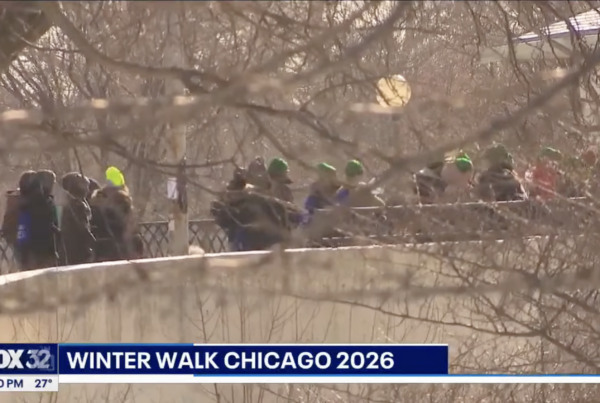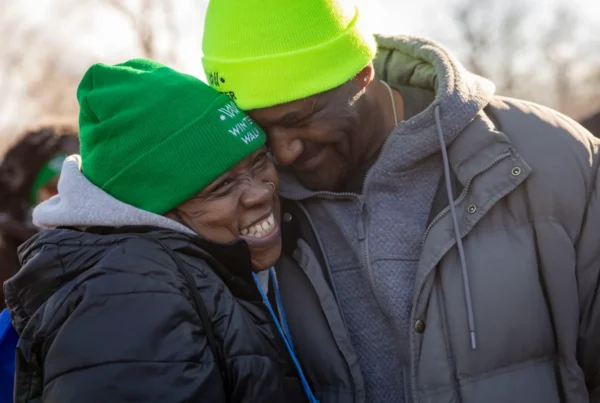By Mark Brown
Robert Henderson left his sleeping place under the railroad viaduct at Oakley and Kinzie on the morning of Nov. 2 to raise money scavenging pallets and panhandling.

Chicago Coalition for the Homeless filed suit March 8 against the city of Chicago on behalf of Robert Henderson in what is believed to be a first test of the state’s Homeless Bill of Rights. / Mark Brown, Sun-Times
When he returned two hours later, he found all his belongings — including heart medication and identification documents — had been thrown away by a Streets and Sanitation crew.
City workers who were still on the scene instructed him to leave the area as well, at least for a “couple of weeks.”
Homeless people become accustomed to such indignities.
But after more than a decade living on the street, it was one time too many for the 62-year-old Henderson.
“You’re already at your low point anyway. For them to come and do that, that was a slap in the face,” the burly Henderson told me while brushing away tears that surprised even him.
On Tuesday, lawyers for the Chicago Coalition for the Homeless brought suit against the city of Chicago on behalf of Henderson in what they believe will be a first test of the state’s Bill of Rights for the Homeless Act.
The so-called Homeless Bill of Rights, enacted in 2013, holds among other things that a homeless person has “the right to a reasonable expectation of privacy in his or her personal property to the same extent as personal property in a permanent residence.”
It also provides that a homeless person has “the right to equal treatment by all state and municipal agencies,” as well as “the right to use and move freely in public spaces, including but not limited to public sidewalks, public parks, public transportation and public buildings,” both without discrimination on the basis of housing status.
Henderson’s lawsuit maintains city workers violated those rights by tossing his possessions without legal due process.
For Henderson, who took his complaint to the Coalition, it’s a matter of principle.
“They just can’t keep doing this to people. We still is human, no matter where people are in life,” Henderson said.
Losing his few belongings was more than an inconvenience. The loss of medications for his high blood pressure, COPD and thyroid hormone replacement created a potentially life-threatening situation.
Unlike most people, Henderson couldn’t just go out and replace the missing meds. He had to wait 30 days for Medicaid to refill his prescriptions.
He also was left without his Social Security card, birth certificate, Bible, clothing, blankets, food and housing applications.
When homeless people lose that stuff, they have to start all over. Getting the identification documents can take months.
Last year, the city entered into a settlement agreement promising to be more respectful of the belongings of homeless people living on Lower Wacker Drive and under Lake Shore Drive at Wilson.
The settlement, establishing rules for both the homeless people and the city, has had mixed results. But the city has fought extending the same procedures to other locations.
Henderson said he stayed nearly two years under the viaduct before the November incident. Four other homeless people who slept there also lost their possessions in the sweep.
Before that, he said, “I stayed in abandoned buildings. I slept in cars. I rode the bus all night. I rode the train. I don’t like shelters.”
Henderson admits that in some respects his homelessness has been “self inflicted.”
Those two years under the viaduct are the same amount of time Henderson says he has been sober after a decades-long cocaine addiction.
As a younger man, Henderson made a lot of mistakes — and has the prison record to prove it.
At this point in life, he said, he just wants to quietly live out his remaining years. Right now, he’s staying with a friend while looking for an apartment.
Somehow we have to recognize that dealing with homeless people isn’t the same as removing the vermin.






